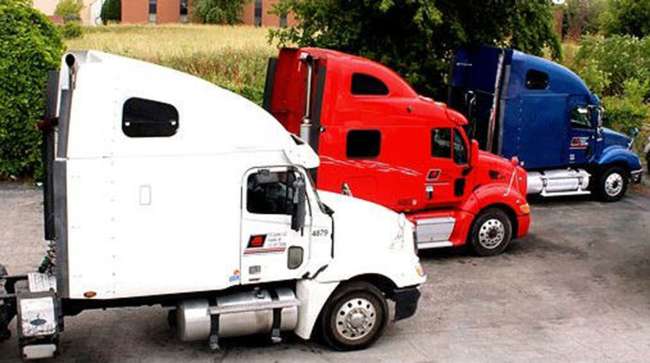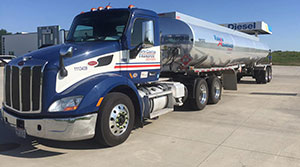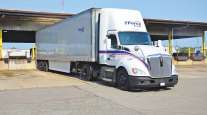Staff Reporter
COVID Drives Trucking Industry Consolidation

[Ensure you have all the info you need in these unprecedented times. Subscribe now.]
The economic fallout from the impact of the coronavirus pandemic has prompted a number of carriers to consolidate.
“The pandemic, and resulting conditions, has accelerated the trend of acquisitions in the trucking space,” Spencer Tenney, president of the transportation merger and acquisition advisory firm Tenney Group, told Transport Topics. “In addition to offsetting rising expenses, which was influencing deals before the pandemic, an interesting factor driving acquisitions is diversification. COVID-19 has demonstrated how dangerous it can be to have 100% of your revenue tied to one industry, or vertical.”
Tenney Group is planning to close four deals between December and January. That includes a $100 million dry van acquisition.

Tenney
The truckload carrier Titan Transfer announced Dec. 9 that it acquired the assets of JTL Carriers in another deal overseen by the firm.
“Of the many experienced buyers that have recently reached out to our team to update their buying criteria and strategic goals, several have indicated that spreading their trucking interests and risks across multiple industry segments is a top priority,” Tenney said.
Hub Group Inc. announced Dec. 9 that it has acquired the last-mile logistics provider NonstopDelivery.
J.B. Hunt Transport Services Inc. expanded its final-mile offerings Nov. 30 by acquiring the assets of Mass Movement.
Manitoulin Global Forwarding on Dec. 3 acquired the customs brokerage and freight forwarding company World Wide International Logistics.
“I think it all revolves around a marketplace today where you have a mismatch between volume and supply,” Jonathan Britva, a principal at investment bank Republic Partners, told TT. “I think that is the overriding factor. Part of that is due to COVID. So I think you have an environment today where supply is much lower than volume and demand.”
Britva added those factors have resulted in a situation where trucking companies have a good cash flow but still lack capacity. He noted one solution is to use that cash to build up the fleet, but that can take time. The other solution is to acquire another company. This has essentially exacerbated ongoing trends by pushing carriers to pursue mergers and acquisitions.
“You can feel and see the activity in the M&A market picking up, be that Mark-It Express or other companies,” Britva said.
Mullen Group entered into a definitive agreement Oct. 2 to acquire International Warehousing & Distribution Inc. That came less than a month after Mullen announced that it had acquired the remaining 60% share of Pacific Coast Express Limited.

Kenan Advantage Group has made two acquisitions this year. (Kenan Advantage Group)
Kenan Advantage Group Inc. announced Sept. 18 that it has completed the acquisition of Les Distributions Carl Beaulac. Kenan announced Nov. 10 that it finalized the acquisition of Fort Transfer Co.
“COVID has obviously made for a very challenging year for a lot of companies,” Britva said. “But you sort of see as we get toward the end of this year a lot of businesses are feeling better about themselves in this environment so you’re seeing the M&A activity pick up.”

Roush
KSM Transport Advisors President David Roush also sees a rise in trucking industry mergers and acquisitions this year. But he noted any sort of meaningful consolidation of the trucking industry is very difficult since the vast majority of carriers are small.
“Trucking is an incredibly fragmented industry, especially the truckload space,” Roush told TT. “That being said, and whether COVID is the reason or not, anecdotally I can tell you that there is a lot of activity with both financial and strategic buyers that are buying up well-run carriers.”
Roush added there is also some mismatch between the carriers that are selling and what buyers want because they’re in the market for companies that are already doing well. Strategic buyers won’t pay a lot for a mismanaged carrier while financial buyers want companies that can run themselves, he said.
“They need talent to run the company for them,” Roush said. “My message is there is definitely deals being done. The companies that are being acquired are well-run companies that need something a strategic buyer or financial buyer can offer.”
Want more news? Listen to today's daily briefing:
Subscribe: Apple Podcasts | Spotify | Amazon Alexa | Google Assistant | More




